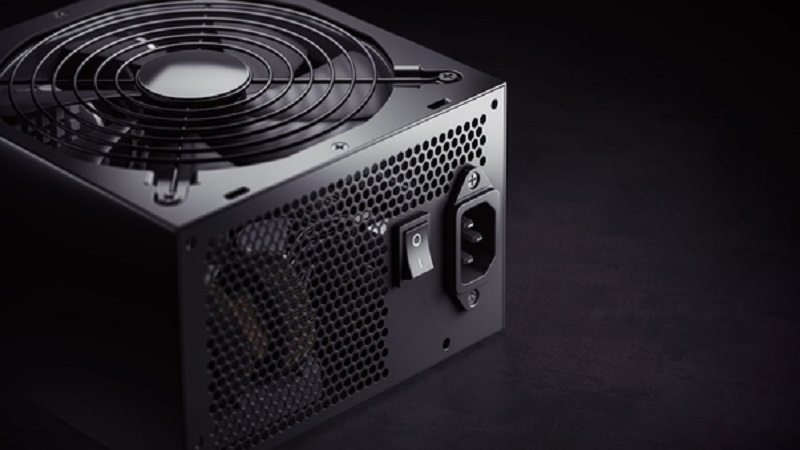
Building a high-performing gaming rig is an exhilarating adventure, but one component often gets overlooked: the power supply unit (PSU). It may not be as glamorous as the graphics card or processor, but the unsung hero keeps everything running smoothly.
Today, we’re diving headfirst into a burning question buzzing around the gaming community: Can a 650W bronze power supply handle the sheer might of NVIDIA’s GeForce RTX 3060? Buckle up because we’re about to find out.
As technology advances and graphics cards become more powerful, it’s only natural to wonder if your current PSU can handle the load. With its jaw-dropping capabilities, the 3060 demands serious power. So, let’s dig deep into power consumption, efficiency ratings, and all things PSU-related to determine whether a trusty 650W bronze unit can keep up with this beast of a GPU.
Join us on this journey through the mysterious world of power supplies as we uncover whether a 650W bronze PSU has what it takes to satisfy the unrelenting hunger of the mighty GeForce RTX 3060.
Is 650W bronze enough for 3060?
Contents
- 1 Is 650W bronze enough for 3060?
- 2 What is a Power Supply Unit (PSU)?
- 3 How Much Power Does the RTX 3060 Require?
- 4 What Does “Bronze” Rating Mean for PSUs?
- 5 Is 650W Bronze Enough to Power an RTX 3060?
- 6 Calculating the Total Power Requirements of a System with an RTX 3060
- 7 Factors to Consider When Choosing a PSU for an RTX 3060
- 8 Benefits of Higher Wattage PSUs for the RTX 3060
- 9 Quality and Reliability of PSUs: What to Look For
- 10 Conclusion
When powering a high-performance graphics card like the Nvidia GeForce RTX 3060, choosing the suitable power supply unit (PSU) is crucial. In this article, we will explore whether a 650W bronze PSU is sufficient to meet the power requirements of the RTX 3060, considering its performance, efficiency rating, and overall system power consumption.
Understanding Power Supply Ratings:
Before diving into the specifics, let’s briefly discuss PSU ratings. The bronze rating refers to the efficiency of the PSU, indicating how effectively it converts AC power to DC power. While a higher-rated PSU (such as gold or platinum) offers better efficiency, a bronze PSU can still deliver sufficient power for most systems.
Power Requirements of the Nvidia GeForce RTX 3060:
According to Nvidia’s specifications, the RTX 3060 has a recommended minimum power supply of 650W. This means that a 650W PSU should be able to handle the power demands of the graphics card.
Considering Other System Components:
It’s essential to consider the overall power consumption of your system. Besides the RTX 3060, other components consume power, such as the CPU, RAM, storage drives, and peripherals. It’s crucial to calculate the total power requirements of these components to ensure that your PSU can handle them all.
Factor Potential Overclocking and Future Upgrades:
If you plan on overclocking your graphics card or adding more components, opting for a higher-wattage PSU is wise. A higher-rated PSU can provide better headroom and accommodate any additional power needs.
Quality and Reliability:
While wattage is essential, choosing a high-quality and reliable PSU from reputable brands is equally important. A good PSU ensures stable power delivery and protects your components from potential damage due to power fluctuations.
In conclusion, a 650W bronze PSU can provide enough power for an Nvidia GeForce RTX 3060, considering its rated power consumption. However, a higher-wattage PSU is recommended for better headroom and future upgradability.
Choosing a reputable brand and model also ensures reliable power delivery and protects your valuable components. Always consult the manufacturer’s specifications and guidelines to ensure compatibility and optimal performance.
What is a Power Supply Unit (PSU)?
When building or upgrading a computer system, one of the most critical components to consider is the Power Supply Unit (PSU). As the name suggests, the PSU supplies power to your system’s other hardware components. Think of it as the heart that keeps your computer running smoothly.
The Importance of a PSU
The PSU plays a vital role in a computer system by converting the alternating current (AC) power from your wall outlet into direct (DC) power required by the computer’s components. Without a PSU, your computer wouldn’t function.
Power Delivery and Wattage
PSUs are available in various wattages, ranging from as low as 300W to well over 1000W, to cater to different power requirements of other systems. The wattage of a PSU indicates its capacity to deliver power. A higher-wattage PSU can handle more power-hungry components and provide stable power delivery.
Efficiency Rating
Not only is wattage necessary when choosing a PSU, but you should also consider its efficiency rating. PSUs are rated based on efficiency, with bronze, silver, gold, platinum, and titanium standard ratings. A higher efficiency rating means the PSU wastes less power, resulting in lower energy consumption and reduced heat generation.
Choosing the Right PSU
When selecting a PSU for your system, it is crucial to consider the power requirements of all your components. Graphics cards, like the Nvidia GeForce 3060, have specific power requirements specified by the manufacturer. Checking these requirements and ensuring that your PSU can deliver enough power is essential.
For example, the Nvidia GeForce 3060 requires a minimum wattage of 650W. However, it’s important to note that this recommendation may vary depending on the specific model and manufacturer.
Quality and Brand
Apart from wattage and efficiency rating, the quality and brand of the PSU should also be taken into account. Opting for a reputable and reliable PSU from a trusted manufacturer ensures the safety and performance of your system.
How Much Power Does the RTX 3060 Require?
One crucial factor to consider is the power requirements of your components, especially when it comes to a beast like the RTX 3060 graphics card. In this article, we’ll delve into the power consumption of the RTX 3060 and provide you with some essential tips on calculating its power needs.
Manufacturer’s Recommendations:
NVIDIA, the brains behind the RTX 3060, recommends a minimum power supply of 550W. This means that your PC’s PSU should be capable of delivering at least 550 watts to ensure optimal performance from this mighty graphics card.
Consider Your Entire System:
While the manufacturer’s recommendation is a good starting point, it’s crucial to consider your entire system’s power requirements. Your CPU, RAM, storage devices, and peripherals contribute to the total power draw. To accurately estimate your system’s power needs, use a reputable power supply calculator that considers all these factors.
Overclocking Considerations:
If you plan to push your RTX 3060 to its limits through overclocking, keep in mind that it will increase the power consumption. Plan accordingly and make sure your PSU has some headroom to handle the extra load.
Efficiency Matters:
The efficiency rating of your PSU is also an important consideration. While a bronze-rated PSU should suffice for an RTX 3060, higher-rated options like gold or platinum provide better energy efficiency and stability, ensuring optimal performance and longevity for your system.
What Does “Bronze” Rating Mean for PSUs?
Regarding power supply units (PSUs), efficiency is critical. That’s why organizations like 80 PLUS have introduced certification ratings to help consumers understand how efficient a PSU is. One of these ratings is the Bronze rating, which signifies a PSU with an efficiency of at least 82% at typical loads.
But what does this efficiency rating mean for your PC? Let’s dive deeper into the world of Bronze-rated PSUs and explore their significance.
- Energy Efficiency: The Bronze rating indicates that the PSU can convert at least 82% of the electrical energy from the wall outlet into usable power for your computer components. This means that only a small percentage of energy is wasted as heat or unused power. By using a Bronze-rated PSU, you can reduce electricity bills and minimize energy wastage.
- Higher Ratings: While bronze is a respectable efficiency rating, there are also higher ratings available, such as Silver, Gold, or even Platinum. These higher ratings indicate even greater energy efficiency and lower energy wastage. However, it’s important to note that higher-rated PSUs tend to have a higher price tag.
- Suitability for Gaming Systems: A Bronze-rated PSU is generally considered sufficient for most gaming systems. For example, if you’re using an NVIDIA GeForce RTX 3060 graphics card, a 650W Bronze-rated PSU should be adequate. The RTX 3060 has a recommended minimum power supply requirement of 550W, so a 650W PSU gives you some headroom for potential upgrades or additional components in the future.
- Consider Other Factors: While the efficiency rating is critical, it’s not the only factor to consider when choosing a PSU. You should also consider the specific power requirements of your components, system power consumption, and the overall quality and reliability of the PSU. Additionally, ensure that the PSU has enough connectors and wattage on its rails to support all your components.
Is 650W Bronze Enough to Power an RTX 3060?
Today, we set sail on the vast sea of power supply units (PSUs) to answer a question: Can a trusty 650W Bronze-rated PSU power the mighty NVIDIA GeForce RTX 3060 graphics card? Join me as we delve into power requirements, efficiency ratings, and the art of choosing the perfect PSU for your gaming rig.
Understanding Efficiency Ratings:
As we embark on this adventure, let’s first understand what that “Bronze” rating signifies. Efficiency ratings, like Bronze, Silver, Gold, and Platinum, indicate how efficiently a PSU converts AC power from your wall outlet into usable DC power for your components. A higher rating means less wasted energy and more sustainable power usage.
The Power Consumption Conundrum:
The RTX 3060, a high-performance graphics card, demands a certain amount of power to unleash its full potential. While a 650W PSU seems promising, it’s essential to consider various factors like system power requirements, potential power spikes during demanding tasks, and the overall stability of your system.
To ensure a smooth voyage for your gaming rig, verifying that your PSU has sufficient wattage on its +12V rail(s) is crucial. These rails deliver power to high-power components like the CPU and GPU. Opting for a PSU with multiple +12V rails or a single powerful rail helps evenly distribute power and prevent overloading.
Planning for Future Adventures:
A wise captain always prepares for future upgrades and additions to their ship. When selecting a PSU, consider potential upgrades like additional storage drives, more RAM, or an overclocked CPU. Having some headroom in terms of wattage ensures stability and prevents overheating.
Manufacturer’s Recommendations:
To navigate these uncharted waters, consult the manufacturer’s recommendations for both the graphics card and the PSU. They provide valuable insights into compatibility, power requirements, and optimal performance.
As we near the end of our voyage, the answer to our burning question emerges. While a 650W Bronze-rated PSU may be sufficient to power an RTX 3060, it’s crucial to consider your system’s overall power requirements, potential power spikes, and any future upgrades you might undertake.
By choosing a PSU with ample wattage and reliable power delivery capabilities, you can ensure a stable and efficient gaming experience.
Calculating the Total Power Requirements of a System with an RTX 3060
In this blog post, we’ll guide you through calculating the total power requirements of a system with an RTX 3060, ensuring that you choose the right PSU to handle this beastly graphics card.
The Power Consumption of the RTX 3060
- NVIDIA’s recommended power supply wattage of 650W
- Understanding that this is a guideline and other factors can impact power consumption
Assessing Other Components’ Power Consumption
- Determining power consumption of CPU, motherboard, RAM, storage devices, peripherals
- Finding specifications in product documentation or manufacturer websites
Crunching the Numbers: Calculating Total Power Requirements
- Adding up power consumption figures for all components
- Incorporating headroom for stability and spikes in power demand (around 20% more power)
Choosing the Right PSU for Your RTX 3060 System
- Bronze-rated PSU as a general recommendation for efficiency and affordability
- Considering factors beyond wattage rating (quality, stability, modular/non-modular design)
- Opting for reputable brands and meeting safety/compatibility standards
Future-proofing Your System
- Considering potential upgrades and their impact on power requirements
- Assessing scalability for future graphics cards or higher-power components
Factors to Consider When Choosing a PSU for an RTX 3060
Hold on tight because we’re about to dive into the world of power supply units (PSUs) and discuss the factors you should consider when choosing one for your RTX 3060.
- Power Output: Let’s start with the most crucial factor – power output. The RTX 3060 recommends a minimum PSU wattage of 650W. This ensures that your system has enough juice to run the graphics card and other components smoothly. However, opting for a higher-wattage PSU for future upgrades or overclocking is always a good idea.
- Efficiency Rating: Efficiency matters, folks. PSUs are rated based on their efficiency, which determines how much power is lost as heat during operation. Look for PSUs with an 80 Plus certification, with bronze being the minimum recommendation for gaming PCs. Higher efficiency ratings like Gold or Platinum can save energy and reduce your electricity bills in the long run.
- Modular or Non-Modular Design: Cable management can be a nightmare, but fear not. PSUs come in two designs – modular and non-modular. Modular PSUs allow you to detach unnecessary cables, resulting in better cable management and improved airflow within your PC case. Non-modular PSUs have fixed cables, which can lead to clutter and hinder airflow. While both options work with an RTX 3060, modular PSUs are generally preferred for better aesthetics and cooling.
- Quality and Reliability: Remember to focus on quality when it comes to your PSU. Opt for reputable brands known for producing reliable units that deliver stable power and protect your precious components from potential damage caused by voltage fluctuations or power surges. Reviews and customer feedback are your best friends when it comes to determining the reliability of different PSU models.
- Connectors and Compatibility: Check your connectors, people. The RTX 3060 typically requires a single 8-pin power connector, but some models may require additional power. Ensure your PSU has the necessary connectors to power your graphics card and other components. Also, double-check compatibility with your motherboard and other hardware to avoid compatibility issues.
- Budget: Last but not least, your budget plays a significant role in your PSU selection. PSUs can vary in price depending on wattage, efficiency rating, and brand. While quality and reliability should be prioritized, finding a PSU that meets your power requirements and budget can help you make an informed decision.
Considering these factors when choosing a PSU for your RTX 3060, you’ll ensure that your gaming system has a stable and reliable power supply. So go ahead and unleash the full potential of your RTX 3060 without worrying about power-related issues.
Benefits of Higher Wattage PSUs for the RTX 3060
When powering your high-performance gaming system with the RTX 3060 graphics card, choosing the suitable power supply unit (PSU) is crucial. While a 650W bronze PSU might be sufficient to meet the power requirements of the RTX 3060, opting for a higher wattage PSU can offer several benefits that enhance your gaming experience. Let’s explore these benefits in more detail:
- Power Efficiency: Higher wattage PSUs are designed to handle greater power loads efficiently. This means that they can deliver power more effectively to the components of your system, resulting in better overall performance and reduced power consumption. Not only does this improve your gaming experience by ensuring smooth and consistent power delivery, but it also helps lower your electricity bills.
- Overclocking Potential: The RTX 3060 is known for its great overclocking potential, allowing you to push its performance beyond its default settings. However, overclocking requires more power. Using a higher-wattage PSU provides your system with enough headroom to handle the increased power demands of overclocking. This ensures stability and optimal performance during intense gaming sessions.
- Future-Proofing: Investing in a higher wattage PSU for your RTX 3060 is like future-proofing your system. As technology advances, newer components tend to demand more power. By opting for a higher-wattage PSU, you ensure your system can accommodate any future upgrades or additions without requiring a PSU upgrade. This saves you money in the long run and extends the lifespan of your system.
- System Stability: The RTX 3060 is a high-performance graphics card that requires a stable and consistent power supply to function optimally. Insufficient power supply can lead to system instability, crashes, or even damage to your hardware. A higher-wattage PSU provides ample power reserves, ensuring your system receives a steady and reliable power supply. This enhances stability, reduces the risk of component failure, and protects your investment.
- Flexibility for Expansion: If you plan to expand your gaming system by adding more components like additional graphics cards or storage devices, having a higher wattage PSU becomes crucial. A higher-wattage PSU allows for more flexibility when it comes to accommodating additional components without overloading the power supply. This ensures that your system can handle the increased power demands of a larger setup.
- Quieter Operation: Higher wattage PSUs often have larger and more efficient cooling fans. These fans can spin at lower speeds while providing adequate cooling, resulting in quieter operation. If you value a quiet and peaceful computing experience, opting for a higher wattage, PSU can help achieve that while still delivering the power your RTX 3060 requires.
Quality and Reliability of PSUs: What to Look For
If you’re planning to build a gaming rig with the powerful NVIDIA GeForce RTX 3060 graphics card, one crucial component you need to pay attention to is the power supply unit (PSU). The PSU is responsible for delivering stable and reliable power to all your system components, ensuring smooth operation and longevity. In this blog post, we’ll discuss the key factors to consider when choosing the right PSU for your RTX 3060, ensuring optimal performance and peace of mind.
Wattage Requirements:
The first thing to consider is the wattage requirements of your system. While NVIDIA recommends a minimum of 650W for the RTX 3060, having some headroom is always a good idea. Opting for a higher-wattage PSU, such as 750W or 850W, can provide stability and accommodate future upgrades.
Efficiency and Certification:
Efficiency rating is another important factor. Look for PSUs with an 80 Plus certification, which guarantees at least 80% efficiency at different load levels. Higher-rated PSUs, such as Gold or Platinum, provide even better efficiency, saving energy and reducing heat output.
Reliability and Brand Reputation:
Choose a PSU from a reputable brand that produces high-quality and reliable units. Brands like Corsair, EVGA, Seasonic, and Thermaltake have established themselves as trusted manufacturers in the industry. Reading customer reviews and professional recommendations can also help you gauge the reliability of a particular model.
Modular or Non-Modular:
Consider whether you prefer a modular or non-modular PSU. A modular PSU allows you to connect only the necessary cables, reducing clutter and improving airflow inside your case. However, non-modular PSUs are more cost-effective options.
Safety Features:
Ensure that the PSU you choose has essential safety features, such as over-voltage protection, under-voltage protection, and short-circuit protection. These features safeguard your components from potential electrical issues and prevent damage.
Conclusion
After careful consideration and analysis, it is evident that a 650W bronze power supply is indeed sufficient for the NVIDIA GeForce RTX 3060 graphics card.
It provides ample wattage to ensure stable and reliable operation, allowing you to fully unleash your gaming rig’s potential.


